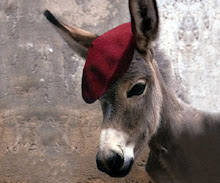Army, Sergeant
Based: Ft. Campbell, Ky.
Headquarters and Headquarters Company, 1st Special Troops Battalion, 1st Brigade Combat Team, 101st Airborne Division (Air Assault)
Supporting: Operation Enduring Freedom
Died: June 16, 2010
Landstuhl Regional Medical Center, USA
Single
Gender: Male
Hometown: Fremont
High School: Washington High (Fremont)
"Nathan went above and beyond the average soldier in pretty much everything he did," said Stephen Kraft, who served in the same platoon in Iraq.
Army Spc. Nathan William Cox, 27, was fatally injured June 14 when insurgents attacked his unit with small-arms fire at a forward operating base in the Khogyani district of eastern Afghanistan's Nangarhar province, on the Pakistani border. He was a healthcare specialist assigned to Headquarters and Headquarters Company, 1st Special Troops Battalion, 1st Brigade Combat Team, 101st Airborne Division (Air Assault) at Ft. Campbell, Ky.
His family flew from their home in the Bay Area city of Fremont to Landstuhl Regional Medical Center in Landstuhl, Germany, where he was in a coma. He died June 16.
After his death, he was awarded a Bronze Star.
Cox's family, friends and fellow soldiers described him as a quiet and thoughtful man who never asked for special attention or recognition, but always seemed focused on solving problems and helping others.
"He had this amazing situational awareness," his brother Patrick wrote in an e-mail. "It's hard to describe his thought process as he kept it internal -- whatever it was, he just did it and did it well."
Born July 15, 1982, in Ypsilanti, Mich., Cox moved with his family to Fremont when he was 5. As a boy, he spoke seldom and loved spending time outdoors. In high school, he played on Fremont's Washington High School water polo team. He was a small player, so he had to play with skill and savvy.
"He couldn't outmuscle you; he would study the game and figure out how to play it with his mind," said his mother, Margaret Cox. "He kind of did everything that way."
Cox joined the Army in 2002 and was first deployed for the invasion of Iraq in March 2003. He served as a combat engineer in the 82nd Airborne Division.
The days were violent and full of fear, said Kraft, his platoon buddy. Their unit patrolled dangerous and unfamiliar corners of Baghdad, often searching homes and buildings for the components that insurgents used to build improvised explosive devices.
Despite his youth, many in the platoon came to rely on Cox for his ability to connect and communicate, Kraft said. "I am 10 years older than Nate, but he was a mentor to me," he said.
After that first 14-month tour, Cox was deployed once more to Iraq and then to Afghanistan. He finished his initial four-year enlistment in January 2006. He was 23.
His brother went to Ft. Bragg, N.C., to pick him up and drive him home. During the long trip back to California, Cox spoke about his experience and shared his feelings. He told his brother how he was struck by the kindness of the Afghan people and described the friendship he had formed with an interpreter there.
"Being Nathan, he never directly said he was going back into the Army," Patrick Cox said. "But everything he said hinted that he would return."
Nathan Cox took time to explore other options, his brother said. He enrolled in a commercial diving course at a college in Wilmington and then worked at a hospital in Katy, Texas.
Ultimately, he chose to return to the Army. He reenlisted in February 2008, and completed a combat medic course at Ft. Hood in Texas.
"He wanted to go back and be more useful," his mother said. "He wanted to help his brothers."
In the summer of 2008, Cox was selected to join the Army's elite Special Forces. He completed the initial phases of the intense training program, which included a six-month course in Farsi.
But by January, Cox had grown tired of waiting. He decided to forgo the remaining phases of the Special Forces training and joined the 101st Airborne Division as a healthcare specialist.
Cox arrived in Afghanistan in the first week of May. The next month, not long before he was killed, he asked his family to send pens and paper.
The children in Khogyani loved to write and draw, and he wanted to offer them gifts.
Do read the entire LA Times article about Army Sergeant Nathan W. Cox here.
Find more about Sergeant Cox at Freedom Remembered
and visit Army Sergeant Nathan W. Cox's Guest Book.


















No comments:
Post a Comment